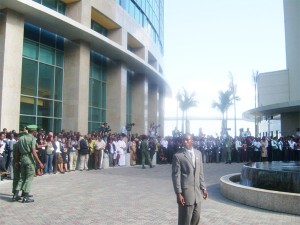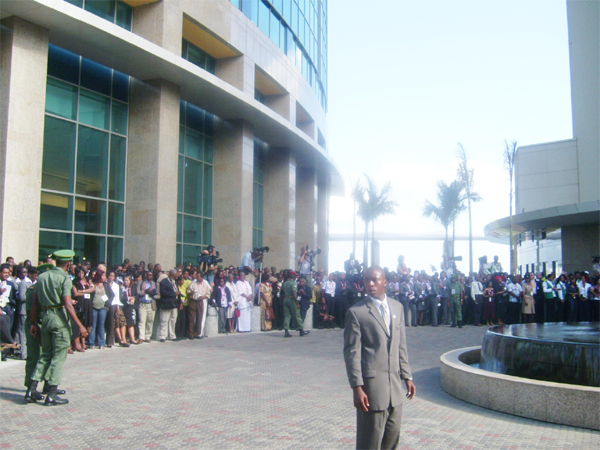Saying that human rights abuses and issues such as domestic and sexual violence are among escalating concerns in countries meeting at the Fifth Summit of the Americas, civil society groups yesterday called on their respective governments to follow up on agreements that arise from such fora and bring an end to the growing lack of implementation.

The social actors raised a string of issues with regional foreign ministers at the opening meeting of the Fifth Summit of the Americas in Trinidad and Tobago, but largely focused on the need for commitment to follow up participation after leaders sit down with civil society.
The role of civil society appears to be waning, stakeholders observed, noting that its participation in the democratic process in the hemisphere is also not being integrated into decision making. This, it opined, threatens its collaborative relationship with leaders.
While pointing to issues of racial and sexual discrimination they noted that violence is a major issue in the hemisphere, and underscored the need for leaders to pay greater attention to public security, particularly, with respect to gender-based violence and child abuse.
At the Caribbean level, recommendations focused on redirecting attention to developing new initiatives and growing new industries that will utilize the natural and creative talents and resources of the region, including agriculture and alternative energy enterprises in the interest of promoting food security, environmental sustainability and employment for peoples of the region.
Further, the group urged governments attending the summit to put the necessary national legislation in place to make operational all of the multilateral agreements to which they have subscribed, and specifically called on Trinidad and Tobago to restore its status on the Inter-American Human Rights Commis-sion. Other priority areas identified for immediate focus were the region’s vulnerability as Small Island Developing States and the return of Cuba to the Organisation of American States.
The Caribbean group also repeated a request for the release of the Fifth Summit of the Americas Declaration of Commitments (Port of Spain Declaration) before its signing by Heads of Government but was immediately turned down by Trinidad and Tobago’s Minister of Foreign Affairs and Chair of the meeting, Paula Gopee-Scoon who stated it could not be released without the signatures.
Watchdog group, Transparency International, specifically raised the issue of corruption saying that research conducted has shown that states’ promises to fight corruption are not being effectively translated into action. According to the group, states do not report sufficiently on actions taken to implement mandates and as there is no standard reporting format, monitoring anti-corruption progress makes for a daunting task.
The group noted that its analysis found serious gaps in the implementation of anti-corruption commitments, particularly as there is a lack of coordination among regional and national authorities responsible for the follow-up of Summit mandates and the implementation of the Inter-American Convention.
Foreign Ministers present at the forum stressed the importance of civil society having a clear strategy and the need for such groups to strengthen relations with government. They largely endorsed the majority of issues raised by the stakeholders.
Guyana’s Foreign Minis-ter, Carolyn Rodrigues-Birkett briefly noted government’s support for civil society’s involvement in the democratic process saying that it is “an integral part of the development of any country”.

